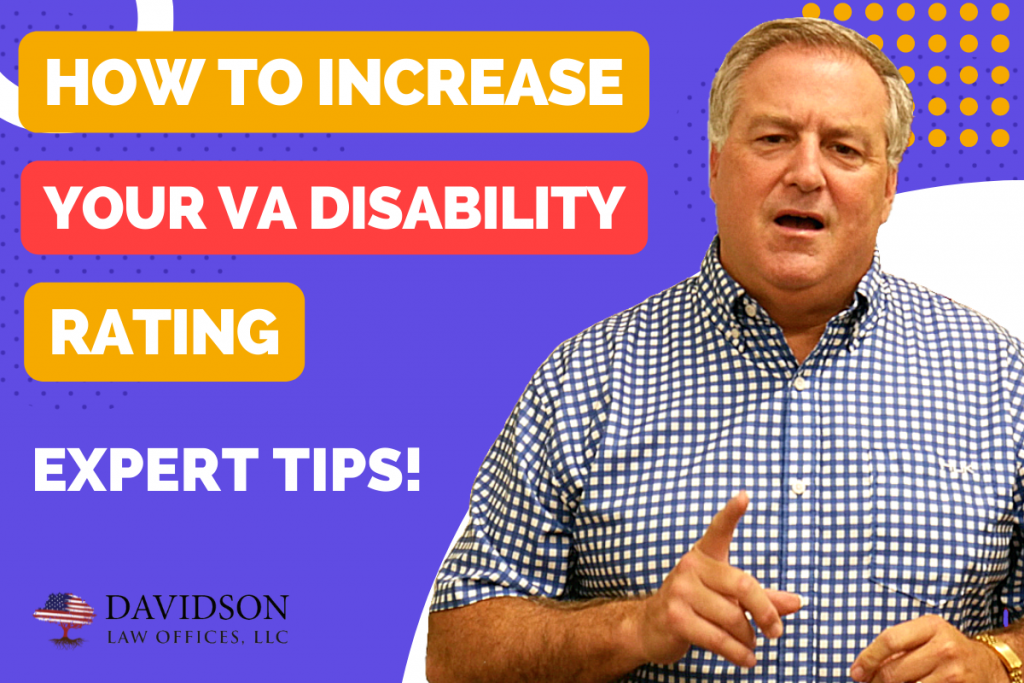If you are a Veteran with a service-connected injury, you likely are already receiving disability benefits through the VA. Maybe you’re only rated 60% or 70% disabled when you’re actually closer to 100% disabled? Did you know that you could increase this disability rating based on your employability? Here we’ll discuss all the details of the TDIU or Total Disability Individual Unemployability component of VA disability benefits.
We often see Veterans who are rated 50% or 60% disabled by the VA, but that are not able to be employed as a result of their service-connected disability. In these cases, we then have to prove to the VA that these individuals are unemployable. If we are able to do this via the TDIU provision, we can usually get their disability rating increased to 100% and thus increase their monthly benefits.
A fully disabled Veteran (100% disability rating) receives about $3,300 a month of benefits. They can also receive additional money if they are married, have dependent children, or having dependent parents. This monthly amount can be a huge help to Veterans who are unable to work a normal job.
Applying for TDIU
Let me give you an example of a client who recently came into our office. This client is working part time, but he is having a hard time with it. He told me that he doesn’t think his disability is going to allow him to continue working. He wanted to know how his current employment status would affect his ability to get his disability rating changed.
I told him that if you’re currently working and earn more than the poverty threshold ($13,000 per year), the VA will consider you gainfully employed. This makes it difficult to get your disability rating changed. However, if you are earning less than the Federal poverty threshold, the VA considers you to be marginally employed.
Because his earnings were more than $13,000 a year, although he was only working part time, we had to figure another way to get his disability rating increased. We then started to try and determine if he was “gainfully employed” based on his working environment. Someone is considered “gainfully employed” if they make more than $13,000 a year and if the job is considered to be in a protected environment.
This all revolves around your work environment. The VA wants to know if you are in a protected work environment. For example, do you work in a family business or does your job allow specific accommodations for your disability? In other words, are you in a job where you can’t get fired because of your inability to perform certain tasks?
The VA does not consider sheltered employment to be “substantially gainful employment.” If your job makes accommodations for your service-connected disability, you are unlikely to receive TDIU compensation. But if your job doesn’t provide any accommodations for you, then you can very likely get your disability rating increased. In the case of this client, his job did not provide any accommodations for him. So we helped him apply for TDIU and are confident his disability rating will be increased.
What about the Veterans that are not employed but that want to be employed? They think that if they can just secure and maintain a job, they’ll be okay financially. But most employers are unwilling to hire someone who has an apparent disability. If you’re walking with a cane or a walker, you’re obviously limited as to what you can do in certain fields.
The VA has been known to deny TDIU claims because they believe an individual is capable of sedentary work. So although someone might be injured and walking with a cane or walker, the VA believes they can still maintain a job that is sedentary. The problem here is that most injured Veterans are not able to sit for that long. If you have a back injury, you have to frequently stand and move to keep from getting stiff.
Contact Us So We Can Help!
We can help you fight the VA on any TDIU claims and this sedentary work requirement that they often place on Veterans.
If you need assistance, please complete this form or give us a call at (229) 226-8183. You can also send us an email to [email protected]. We’re here for our Veterans and looking forward to helping them receive the benefits that they deserve.
If you’d like to see this blog in video format, you can watch it below. Please be sure to SUBSCRIBE to our YouTube channel and click the bell notification button so that you’re notified each time we publish a new video.

